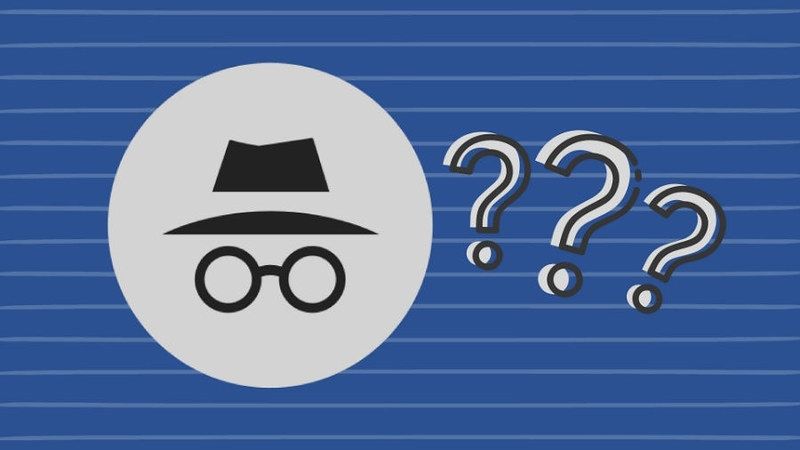The recent settlement between Google and users who filed a class-action claim with respect to Chrome's Incognito mode has traveled fast through the online privacy community. This lawsuit filed in 2020, raised genuine concerns about how Google handles user information supposedly protected by Incognito mode.
This blog post will take a deep dive into the lawsuit, the settlement's implications for regular Chrome users and the significance of maintaining vigilance in a world where online privacy is always under scrutiny and investigation.
The Incognito Mode Class Action Lawsuit

"Google got a new PR department" by surrealpenguin is licensed under CC BY-SA 2.0.
The lawsuit's core contention centered around Google supposedly misleading users regarding the genuine privacy offered by Incognito mode. Plaintiffs claimed that Google proceeded to track user activity even while browsing in Incognito mode, potentially abusing federal wiretapping laws and California's privacy laws.
This basically implied that users' supposedly private browsing habits, from inquiring about travel destinations to investigating sensitive health subjects, were being collected by Google for potential use in targeted marketing or even sold to third parties.
The lawsuit claim highlighted a vital dissonance between Google's messaging and reality.
Incognito mode, marketed as a shield for private browsing, appeared to have significant gaps. Emails revealed during the case showed that even Google administrators were aware of this issue, with a few contending against using the term "private" altogether due to its deceiving nature.
The Road to The Google Lawsuit Settlement
Confronting a potential $5 billion payout, Google settled the lawsuit in December 2023. Let's break down the key aspects and perspectives of the settlement and what they mean for Chrome users:
Data Deletion and De-identification
Google has agreed to erase "billions of data points" collected on users' Incognito browsing activities prior to December 2023. This data encompasses different components of user activity while in Incognito mode. Be that as it may, it's imperative to note that the settlement focuses on data deletion, not essentially preventing or avoiding future collection. The settlement also orders de-identifying remaining data to avoid reconstruction of user identities. This de-identification process likely includes methods like partial redacting of IP addresses, generalizing user agent strings and erasing detailed URLs. While these steps make it harder to pinpoint particular users, a few privacy advocates remain concerned about the potential for re-identification using modern, evolved and sophisticated strategies.
Transparency and Disclosure
Google has promised to improve its explanations with respect to data collection practices in Incognito mode. This incorporates updating Chrome's privacy disclosures to more accurately and precisely reflect the limitations of Incognito browsing. This is already underway, with users potentially noticing revised dialects when they open Chrome in the future. By clarifying what Incognito mode does and doesn't protect, Google points to address the confusion highlighted in the lawsuit.
Blocking Third-Party Cookies
For the next five years, Chrome's Incognito mode will have a default setting that blocks third-party cookies. Third-party cookies are a common tracking strategy used by advertisers and websites to follow user activity across different platforms. Blocking them in Incognito mode limits Google's capacity to track users on websites outside of Google's environment while browsing in Incognito.
In any case, it's critical to keep in mind that Incognito mode doesn't block first-party cookies placed by the websites you specifically visit. Furthermore, the settlement doesn't address other tracking methods like browser fingerprinting, which can still be used to identify users to a certain extent.
Individual Claims from the Class Action Lawsuit
Whereas the settlement itself doesn't provide automatic compensation for users, it allows people to seek after claims for damages in separate lawsuits. This alternative is accessible for users who believe they were harmed by Google's data collection practices in Incognito mode. As of now, 50 such claims have been recorded in California, signifying the potential for further legal action.
Why Hyper Vigilance Remains Crucial
The Incognito mode lawsuit serves as a stark update that user privacy online is a complex and ever-evolving issue. remaining vigilant remains vital even with the settlement in place.

"Half-century shadow" by coofdy is licensed under CC BY-NC-SA 2.0.
Limited Scope of the Settlement - The settlement fundamentally addresses past data collection and doesn't ensure complete protection in the future. Google may develop new data collection practices that weren't covered by the lawsuit. Modern innovations and tracking strategies constantly emerge and evolve , requiring users to stay informed and adapt their online behavior accordingly.
Information Sharing Prior to the Claim - The settlement doesn't fundamentally address the plausibility of Google sharing collected data with third parties before the claim. There's a chance that client information assembled in Incognito mode was already sold or used for marketing purposes before the legal action commenced.
Incognito Mode Limitations
Incognito mode is just one aspect of online privacy and the Incognito mode lawsuit settlement doesn't dispense with the need for broader vigilance.
Incognito Doesn't Block Everything
While Incognito mode offers a few benefits by preventing browsing history and cookies from being saved locally on your gadget, it doesn't give total anonymity. Your internet service provider (ISP) can still see your browsing activity and websites you visit can possibly collect data about you. Moreover, browser fingerprinting, a method that accumulates unique details about your device and browser configuration, can be utilized to track you across different websites even in Incognito mode.
Incognito on Shared Gadgets
Be mindful when using Incognito mode on shared gadgets like public computers or work computers. Incognito mode doesn't anticipate your browsing activity from being logged by the gadget itself or monitored by network administrators.
Incognito and Downloading Files
Downloading files while in Incognito mode doesn't make them invisible. Downloaded records are put away on your device's hard drive and can be accessed by anyone with physical access to the gadget.
Incognito and Extensions
Browser extensions can still get to your browsing activity even in Incognito mode, depending on the permissions you've granted them. Routinely audit your browser extensions and disable any you don't actively use.
Building a More Private Browsing Mode Experience
The Incognito mode lawsuit settlement highlights the importance of taking a more proactive approach to online privacy.
Here are a few steps you can take to upgrade your security while browsing.
Privacy-Focused Browsers - Consider using privacy-focused browsers like DuckDuckGo or Brave. These browsers prioritize client privacy by using built-in features to block tracking cookies and scripts.
Privacy Settings - Review and adjust your privacy settings on Google Chrome and other online services you employ. Most services offer options to control data collection and personalization settings.
Ad Blockers - Consider using advertisement blockers to limit tracking cookies and targeted marketing. Advertisement blockers can altogether reduce the amount of information collected about your browsing habits.
Strong Passwords & Multi-Factor Authentication - Use solid and unique passwords for all your online accounts. Furthermore, enable multi-factor authentication (MFA) whenever possible. MFA includes an additional layer of security by requiring a second confirmation step, like a code from your phone, to log in to your accounts.
Virtual Private Networks (VPNs) - Employing a VPN like Nord can scramble your web activity and cover your IP address, making it more troublesome for websites and trackers to pinpoint your location.
However, it's critical to select a legitimate VPN provider with a solid track record on privacy.
Staying Educated - The online protection scene is continually advancing. Stay updated on privacy issues and new developments in online tracking practices. Resources just Like the Electronic Frontier Foundation (EFF) and Privacy International offer valuable information and tools to assist users protect their privacy online.
By understanding the confinements of Incognito mode and taking these steps, you'll be able to make a more secure and private browsing encounter. Keep in mind, security isn't an all-or-nothing proposition. Each step you take to restrain information collection and tracking contributes to a more private online experience.
What Does the Google Settlement Mean for the Future of Online Privacy?

"Google Incognito Mode" by The Incognito Guy is licensed under CC BY-SA 4.0.
Increased Scrutiny of Data Collection Practices
The lawsuit highlights the developing public concern about information collection practices by tech giants like Google. This will lead to stricter controls and increased scrutiny of how companies handle client information.
Transparency and Client Control
The settlement emphasizes the importance of transparency with respect to information collection. Users merit clear and concise information around what data is collected, how it's used and how to control those practices.
The limitations of Incognito mode highlight the need for innovation in privacy-preserving innovations. Engineers and tech companies can play a vital part in creating tools and solutions that empower clients to control their online privacy without sacrificing functionality.
The Incognito mode lawsuit may be settled, but the fight for online privacy is far from over. By staying informed, taking proactive steps and requesting greater transparency from the companies we interact with online, we can work towards a future where online security is an essential right, not a benefit.








